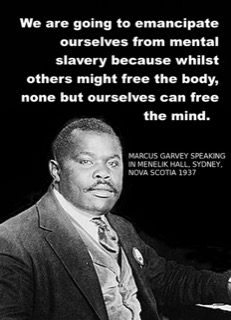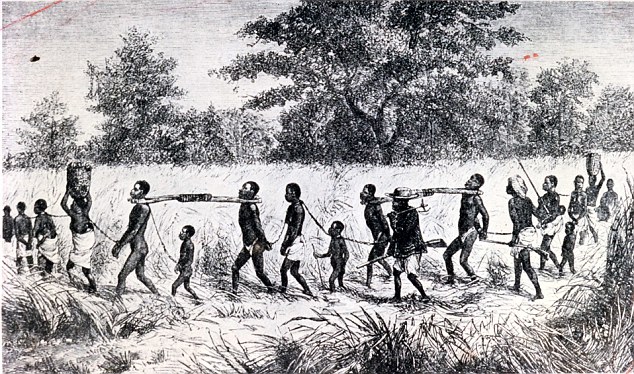By C. ben-David
Psychological Rehabilitation
For over 400 years Africans and their descendants were classified in law as non-human, chattel, property, and real estate . This history has inflicted massive psychological trauma upon African descendant populations.
This much is evident daily in the Caribbean. Only a reparatory justice approach to truth and educational exposure can begin the process of healing and repair (Caribbean Reparations Commission, 2014).
***
The Caribbean Reparations Commission (CRC) is a 12-nation Caribbean Community (CARICOM) sub-committee mandated to obtain reparatory justice from Great Britain, France, Holland, Spain, and other nations responsible for post-Columbian New World slavery. (I deliberately use the term post-Columbian because slavery existed in many part of the Western Hemisphere before 1492.) Part of this mandate is healing and repairing the massive psychological trauma passed on to the descendants of African bonded people.
Decades before the CRCs formation, a Vincentian political activist suggested that this psychological trauma, if it exists at all, was exacerbated by the very political elites that now want to abolish it:
With the advent of universal franchise in [St. Vincent and the Grenadines (SVG)] in 1951 [t]he flood-gates of pent up frustrations [rooted in British Crown colony rule] were unlocked and the people channelled all their released emotions into politico-economic movements. Everybody had to be a party-man in a fashion bordering on the fanatic. A political vacuum was created which sucked in the charismatic leader to offer a Father figure to a people still afflicted with the slave mentality of Massa Day . Precisely because they had been denied a place in the political process the people got themselves to believe that politics held the key to all problems and offered the panacea to every ill (Kenneth John, Flambeau Quarterly Magazine, No. 5, July 1966, pp. 2-3, 7).
The newly discovered political vacuum the CRC is trying to fill for a people still afflicted with the slave mentality of Massa Day is rooted, as it has been since universal adult suffrage was obtained in the CARICOM countries, in the belief that electoral politics holds the key to all problems and offers the panacea to every ill.
 This time, however, the political vacuum has barely sucked in any ordinary citizens or done much to convince them that they require psychological rehabilitation. Add to this the small number of former slave societies engaged in this effort, the poorly documented nature of CRCs demands, the recalcitrance of the former colonial powers, seemingly insurmountable legal hurdles, and the reparatory justice effort looks like just another make-work project for idle bureaucrats as well as a cynical ploy by impecunious Caribbean governments to scapegoat the Europeans for their own home-grown policy blunders.
This time, however, the political vacuum has barely sucked in any ordinary citizens or done much to convince them that they require psychological rehabilitation. Add to this the small number of former slave societies engaged in this effort, the poorly documented nature of CRCs demands, the recalcitrance of the former colonial powers, seemingly insurmountable legal hurdles, and the reparatory justice effort looks like just another make-work project for idle bureaucrats as well as a cynical ploy by impecunious Caribbean governments to scapegoat the Europeans for their own home-grown policy blunders.
Moreover, the position of Marcus Garvey, the father of the Caribbean Black nationalism movement, casts doubt on the CRCs implicit assumption that the post-slavery psychological trauma can only be overcome by external professional intervention when he said even decades earlier that:
We are going to emancipate ourselves from mental slavery because whilst others might free the body, none but ourselves can free the mind. Mind is your only ruler, sovereign. The man who is not able to develop and use his mind is bound to be the slave of the other man who uses his mind… (Nova Scotia, Canada, October 1937).
My reading of Marcus Garveys words is that unlike chattel slavery where very different people were arbitrarily aggregated by their skin colour and birth place, traded as commodities, their slave status passed on to their children at birth, mental slavery is a personal psychological state that is both alterable and non-heritable. Offered the proper learning and endowed with sufficient will power, mentally enslaved people, if they actually exist, can be self-transformed into perceptive, determined, and critical thinkers.
Historical proof for these assertions is abundant. It can be easily seen in the many slave revolts and daily resistance to an inhumane bondage system throughout the Americas and in the emergence of a heroic and resolute indigenous Black leadership during and after slavery. A mentally enslaved Haitian people could never have defeated Napoleons army in 1803. A victorious Haitian people who so successfully challenged long-held beliefs about black inferiority and the capacity of enslaved people to achieve their freedom and fashion a new way of life could hardly be consumed by self-hatred, as CARICOM officials falsely claim.
Disowning this history is to reject the resiliency and creativity of the formerly enslaved people of the New World. Conversely, embracing the past means challenging the role of an unproven and demeaning mental slavery in the generation of our vibrant and varied Caribbean civilization. No wonder, then, that the teaching syllabi in all English-speaking Caribbean countries have long contained much exposure to all dimensions of the slavery issue thereby making the reparatory justice approach to truth and educational exposure redundant.
This is not to deny that the Black peoples of the Americas often use demeaning racial epithets against one another by negatively referencing physical characteristics or personal behaviour. Nor have Black people achieved the same proportional socio-economic status as other groups. But racism, social stratification, body shaming, and the pejorative evaluation of acts and deeds is a universal part of the human condition that characterizes all peoples whether their ancestors were enslaved or not.
Lessons in history and cultural anthropology teach that freedom from so-called mental slavery also means psychological liberation from the elitist CRC victimization paradigm that speciously claims Black people have been so emotionally traumatized and are so inherently weak-willed that they cannot overcome the legacy of a physical bondage that ended between 1803 in Haiti and 1888 in Brazil. Arguing otherwise, as the CRC does, is the embodiment of repugnant racist stereotyping.
Indeed, perhaps only a truly mentally enslaved or deranged — person could believe that after nearly ten generations in the English-speaking Caribbean, the home of most of the reparation hungry leadership, and 300 years of trying to subvert slavery in small and large ways, countless Black people continue to be infected by a pseudo-mental illness that operates as if it were an inherited disease. A thoughtful, enlightened person would call this junk psychiatry. Such a person would also call the so-called experts diagnosing this ailment member of the CRC and their sponsoring groups and governments quacks.
What fully conscious people would reject as well is the inferiorising premise, ironically displaying the same slave mentality that its proponents say needs to be destroyed, that only White people in Western Europe have the power and authority to end the alleged inherited pain of the enslavement of our long dead ancestors by offering blood money. How could the CRC not understand that begging our Father figures for handouts would only increase the sense of dependency, inadequacy, and hopelessness that is allegedly at the core of mental slavery?
My reading of the words of Dr. Kenneth John is that if the slave mentality of Massa Day was a pre-existing psychological affliction, it was certainly reinforced and strengthened by an emergent Black political elite to serve their own personal and class interests, a process that still continues with the maneuvers of the hyper-privileged CRC cabal.
Freedom from mental slavery most of all means having the courage to peep behind the tattered reparations curtain to discover that the entire movement is about satisfying the greedy demands of allegedly progressive Caribbean politicians zealously blaming what are actually their own leadership failures and policy errors, compounded by low economies of scale, tiny country and population size, and a paucity of valuable natural resources, on a system of bondage that was voluntarily ended so long ago.
Still, the very existence of the covetous CRC is all we can expect from a dystopian CARICOM made up of historically and culturally similar people who, unlike the comparatively tightly knit European Union of formerly chronically warring states composed of seemingly incompatible ethnic and linguistic populations, are incapable of agreeing on or managing such fundamental issues as the labour mobility of their own citizens and the free trade in their own goods and services.
***
This is the third in a series of essays debunking the CARICOM slavery reparations effort. My other reparations essays are listed below:
- Ten reasons Caribbean slavery reparations are a bad idea
- The Caribbean slavery reparations gang of 12
The views expressed herein are those of the writer and do not necessarily represent the opinions or editorial position of iWitness News. Opinion pieces can be submitted to [email protected]
The opinions presented in this content belong to the author and may not necessarily reflect the perspectives or editorial stance of iWitness News. Opinion pieces can be submitted to [email protected].






